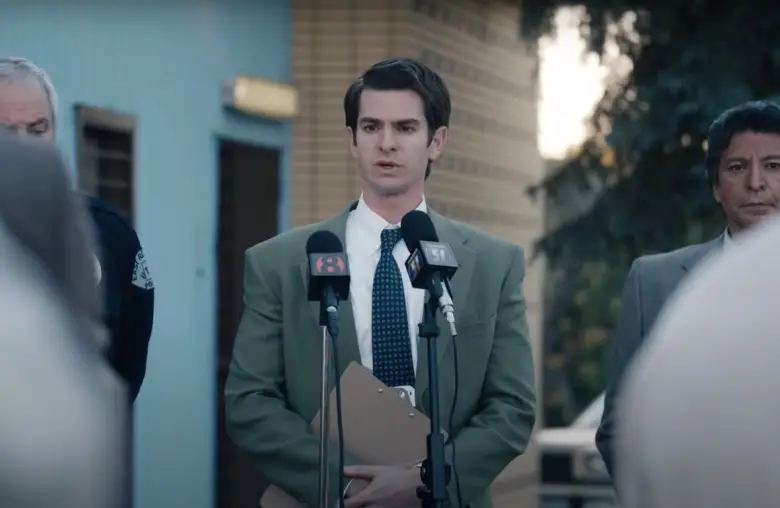There is no shortage of badly written B-movies poking fun at the LDS church, but lately Hollywood has taken a more serious interest in telling stories about Mormon fundamentalists. Recent releases include a Netflix docuseries titled “Keep Sweet: Pray and Obey” and “Under The Banner Of Heaven,” a drama series about a Mormon detective who begins to question his own faith after investigating a gruesome murder committed by a locally respected Mormon family that fell into extreme fundamentalism.
The Mormon faith last became a pop culture phenomenon during the 2010s, when “The Book Of Mormon” was new to Broadway. What is the reason for this resurgence in interest, and why now? More importantly, what even is Mormonism? Mormonism, or the Church of Latter-day Saints/LDS church, is often joked about, but few might be able to accurately describe what makes their beliefs differ from other denominations of Christianity.
Attempting to write a concise, informative summary of the history of the LDS church is like trying to wrangle an octopus into a burlap sack, but the octopus has 24 arms and the burlap sack is on fire. The Church of Jesus Christ of Latter-day Saints is more popularly referred to as the Mormon church or the LDS church. The church was founded by Joseph Smith after, at the age of 14, he received a revelation from God that told him not to join any existing Christian churches. Three years later, an angel named Moroni told Smith that he had been selected to translate the Book of Mormon, which was allegedly inscribed on golden plates somewhere in New York — Smith did not allow anyone else to see these plates, because the angel Moroni forbade it.
Mormons believe that the holy trinity (Father, Son, and Holy Ghost) are three separate gods and that there are three levels of heaven (the highest being celestial, where they will live in God’s presence). Mormons famously do not consume coffee, alcohol, tea or tobacco; many turn to soda instead, to the extent that soda shops have become wildly popular in an area of the U.S. described as the “Mormon Corridor.” Contrary to popular belief, the church only bans hot caffeinated drinks; Coke is still safe, until God declares otherwise.
The sins of the LDS church are heavy and numerous — this is not unique to this particular denomination but is still obviously worth mentioning. Until the 1970s, Black men were restricted from partaking in certain activities in the LDS church and could not join the priesthood. Women are still barred from becoming priests. From the 1950s to the mid-1990s, the LDS church operated an “Indian Placement Program,” where Native American children (often impoverished) were invited to live with white Mormon families during the school year, where they were often baptized as Mormon.
In an article for The Atlantic, Emma Green wrote, “The LDS Church teaches that Native Americans are descendants of the Lamanites … In the Book of Mormon, the Lamanites are predominately a wicked people, cursed by God with a ‘skin of blackness’ as punishment for turning against him.” An LDS church document from 1976 confirms that “Lamanite” was the Mormon definition of “Native American.” This is just an introduction to the numerous offenses committed by the LDS church; this brief list barely dips a toe into the shallow end. One begins to wonder why Hollywood hasn’t taken greater advantage of the skeletons in the LDS church’s closet.
Hollywood has always been fascinated with cults, and cults derived from Christian fundamentalism are an even more enticing target because they are often steeped in reality. A recent example is “The Eyes Of Tammy Faye,” a biopic about Tammy Bakker, who, with her husband Jim Bakker, developed a cult-like following around the largest religious broadcasting network in the United States; Jim Bakker fell into infamy after being convicted and imprisoned for fraud.
There are too many movies about cults to name, like “Children Of The Corn” or, to name a more recent example, “Midsommar.” Whereas satanic cults and stories about satanic ritual abuse were popular in film from the ‘70s to the late ‘90s/early 2000s, Christian cults have become a more captivating subject in contemporary film and TV, proving that truth is often stranger (or more engrossing) than fiction. One recent series about the horrors of Christian fundamentalism is “Keep Sweet: Pray and Obey.”
“Keep Sweet: Pray and Obey” is a Netflix docuseries that details the rise of Warren Jeffs, the leader of the FLDS (Fundamentalist Latter-day Saints) church, an apocalyptic sect of the LDS church. The rise and fall of Warren Jeffs is detailed through personal interviews with ex-members of the FLDS church, many of them women who were victims of polygamous marriages ordained by FLDS leaders.
Although the LDS church has since excommunicated the FLDS church due to its continued practice of polygamous marriage that has created an overwhelmingly negative reputation for the LDS church as a whole, the FLDS church’s beliefs do not and cannot exist in a vacuum. The LDS church is the root of the FLDS church’s evil. The FLDS church simply amplified and warped the core message of the LDS church. What better way to ensure religious devotion than to convince people that the end is near, that their only salvation when the world goes up in flames is to become the best FLDS member they can be, and that the only way to be the best is to unquestioningly believe everything the FLDS leaders tell you to do?
Although the LDS church has firmly stated that they have denounced polygamy and any person who practices polygamy is not affiliated with the LDS church, their website says “the Bible and the Book of Mormon teach that the marriage of one man to one woman is God’s standard, except at specific periods when He has declared otherwise.” So, plural marriage is not allowed, unless God decides it is during specific instances. Although in all fairness, plural marriages are expressly forbidden in modern times and were only encouraged between 1840-1890.
In “Keep Sweet: Pray and Obey” some ex-members of the FLDS church describe how men were assigned multiple wives as “rewards,” and that men who were not given more than a few wives felt as if they were being punished in some way. Marriages were rarely created out of love. The purpose of marriage and sex was not for pleasure but to create as many new FLDS members as possible. Rulon Jeffs, who served as president of the FLDS church and was the father of Warren Jeffs, had around 65 wives by the time of his death and at least 65 children. One ex-member interviewed in “Keep Sweet: Pray and Obey” talks about being married off to Rulon Jeffs at the age of 19; at the time, Rulon Jeffs was already an elderly man. Another woman who was forcibly married to Rulon Jeffs describes how she used to trick him into falling asleep to avoid intercourse with him.
In contrast, “Under The Banner Of Heaven” is a fictionalized story of a murder and infanticide that occurs in a primarily Mormon town. After watching “Keep Sweet: Pray and Obey,” I found it difficult to be shocked and appalled as the show described an esteemed Mormon family’s collapse into fundamentalist insanity. I had already seen the reality, and the reality was much more horrific than any TV show could ever hope to replicate.
The show makes temporal jumps between brief glimpses of the life of Joseph Smith, to the present-day detective (played by Andrew Garfield) unraveling the murder mystery, to the events leading up to the murder as told by the husband of the victim. Viewers who watch “Under The Banner Of Heaven” prior to “Keep Sweet: Pray and Obey” may find it easier to become engrossed in the drama series, unfettered by the echoes of the chilling accounts from former FLDS victims. The two shows make a good pairing, like wine and cheese, but the order they are viewed in is important.
Why has the LDS church become a renewed public spectacle, and why now? As QAnon conspiracies run rampant, satanic panic-era fears have become increasingly prevalent. The satanic panic never truly died but went stagnant until QAnon resurrected it. Hollywood is tired of the same old stories about secret satanic ritual abuse — Christian fundamentalist abuse is horrifically real, and as more people open up about the trauma they endured in the name of God, the more audiences are interested in watching stories about real and fictionalized Christian cults. “Keep Sweet: Pray and Obey” and “Under The Banner Of Heaven” are only the beginning.

















